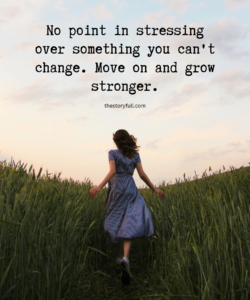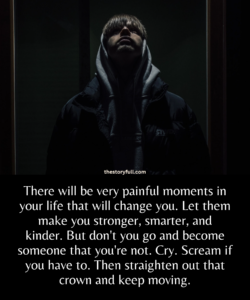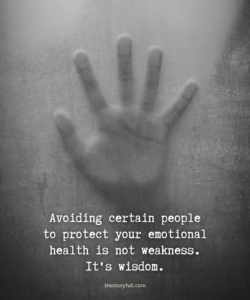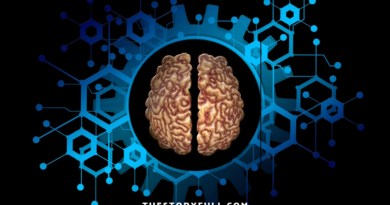The Three Phases of the Stress Response Cycle are Explained by Psychology.
Everybody experiences stress on a daily basis, but few are aware of the stress response cycle. Even if you are fortunate enough to lead a relatively stress-free life, you will still experience stress to some degree. This is due to the fact that stress is a normal hormonal response to dangerous or uncomfortable situations. However, the majority of people are unaware that the emotion does not appear out of nowhere. Even if you don’t realize it, your body’s natural reactions may be to blame for your feelings of depression or exhaustion.
There is an entire pressure reaction cycle that individuals go through when they are feeling the squeeze. Breaking the cycle is the only healthy way to deal with stress. The issue is that they are not taught these things as children. Society frequently views stress as normal and places insufficient emphasis on mental health.
While this is in some cases regular and accommodating, it doesn’t mean being under devastating pressure constantly is typical. But people don’t learn that way. Not only does no one teach others how to effectively deal with stress, but some even glorify it. For instance, you’ve probably been told that work isn’t enough if it doesn’t make you feel stressed out. Alternately, it’s possible that your parents taught you that if you don’t worry about school or work, you don’t care.
Being constantly worried about such inconsiderate remarks seems normal. In addition, they make you believe that if you don’t, you should feel guilty. People develop unhealthy ways to deal with stress as a result. As a result, they never fully RELAX because they do not complete the stress response cycle. It harms your mental and physical health at the same time. Hence, you really want to gain proficiency with the phases of the pressure reaction cycle to appropriately manage pressure.
Do You Know What Stress is?

You need to know what stress is and how it can affect you before you can get into the specifics of the stress-free cycle. Talking about what’s making you stressed is the best way to begin. Stress is a common response to dangerous, demanding, or difficult circumstances. Your body must react and produce hormones in these situations. Your body needs to have these hormones in order to be awake enough.
It’s a way to get used to new situations and deal with them well. This may feel like the fight or flight response to you. The initial stage of the stress response cycle is simply known as this reaction. This natural response makes sense when considering human evolution. It was necessary for human survival in prehistoric times. They would run the risk of becoming complacent and being harmed by some wild animals otherwise.
However, their bodies were prepared to escape danger by fighting or running away. Naturally, society has developed, and we are no longer required to flee from wild animals. However, this does not rule out the usefulness of stress.It can still help you focus better on a test, for instance.
How Will You Respond To Stress?
How does stress help the body prepare for such circumstances? The body produces a lot of cortisol and other hormones when a stressor stimulates the nervous system. Physical changes are sparked as a result. More specifically, it raises your heart rate, which in turn raises your blood pressure. Additionally, it enhances muscle readiness, sweating, and overall vitality. You can better respond to certain challenges thanks to all of these factors.
What’s the catch, then? How bad is stress? Even though only the positive aspects have been discussed thus far, there are many more. Stress is just useful in modest quantities, truth be told. However, a person’s mental and physical health deteriorates when they experience excessive stress. You might feel exhausted or sluggish. On the physical level, excessive cortisol can lead to issues with the heart, the digestive system, and even the muscles.
For instance, in 2018, a review of a few studies revealed a connection between stress at work and an increased risk of coronary heart disease. Additionally, psychological issues cannot be ignored. A mental health issue can emerge from repeated stress. Although acute stress can develop into chronic stress, it is more prevalent. Stress can also cause PTSD, depression, and other mental health issues.
By comprehending the stress response cycle, you can steer clear of all of these dangers. It is best to comprehend this cycle, regardless of whether you were aware of it. Realize what your body needs for solid endurance.
The Three Phases of Stress Response Cycle
Anxiety, Refusal, and Lack of Energy Let’s take a look and how each Phase affects your agitated mind.

1. Phase of Anxiety
The beginning of the stress response cycle. Then, a stressor, typically a dangerous or stressful circumstance, sets it off. The amygdala, which is responsible for processing memories and emotions related to fear, then sends signals to the hypothalamus, which is the link between the nervous system and the endocrine system. Adrenaline enters the bloodstream after the sympathetic nervous system is activated by the hypothalamus.
It is the most visceral way your body responds to a threat. These signals cause changes like a faster heart rate and faster breathing. Consequently, you will experience a rapid increase in vitality and energy levels. Find out what causes stress to keep you up at night and why.
These actual changes will expand your energy regardless of how tired you are. People refer to this stage as the “fight or flight” response.As with all animals, this is the same response. However, compared to that of animals, the human stress response cycle is somewhat more complicated.We have a few extra steps than they do.
2. Phase of Refusal
The second phase of the stress response cycle. In this instance, the body presses the breaks when it senses danger or when the pressure is gone. In particular, the body’s stress response is reduced, but not completely, by the parasympathetic system. It still enables you to remain vigilant for true safety.
You will also be able to tell if you have regained your equilibrium at this point. You will be able to recover from your shock thanks to this step. However, if your life is full of stress, this is impossible. This keeps your body alert at all times.
However, the timing of this step is not always exact. Before the danger is over, your body may stop releasing hormones. The hormones must be released once more by the nervous system in this instance. The drawback is that your energy levels will drop quickly before going up again.
Because it comes as a shock, you probably feel upset. You might even lose your way. The outcome is the same whether this cycle is stopped or not. The final phase of the stress response cycle follows from this.
3. Phase of Lack of Energy
When your body is overwhelmed by stress, you will experience exhaustion, the final stage of the stress response cycle. Because your body has the ability to recover before reaching this point, exhaustion does not always have to occur. However, you cannot avoid chronic or uncontrollable stress. In an ideal world, nobody would need to complete this step.
However, the only way to accomplish that is to allow your body time to heal and cease hormone injections. When you have a demanding job, for instance, taking breaks is crucial. Your body goes into overdrive and releases adrenaline and cortisol when these breaks do not occur. Your body’s resources run out gradually. Your body can unfortunately deliver a limited number chemicals before it runs out.
You will experience a significant decrease in energy at some point as the adrenaline wears off. However, that is not the only issue. Your body’s normal functions are disrupted when it is under too much stress.Recollect that pressure makes your heart beat quicker and influences your breathing, muscles, stomach related framework and the sky is the limit from there. When these systems are overloaded, they all suffer.Heart disease, diabetes, mental health issues, and other chronic diseases are all possible over time.
That’s why stress management is so important. You need to see a therapist and address your issues if you suffer from chronic stress. Additionally, you must identify and work to eliminate your stressors. For instance, if your stress is primarily brought on by your job, you might want to think about changing that.

Final Thoughts on Understanding the Stress Response Cycle’s Three Stages
We all have to deal with stress at some point in our lives, whether we like it or not. However, this does not imply that constant stress is healthy or normal. Small amounts aid in maintaining alertness and readiness for difficult tasks. However, if it is lost, it could harm your mental and physical health. Anxiety, Refusal, and Lack of Energy, the three stages of the stress response cycle, demonstrate just that.
When you look at the last stage, the dangers of chronic stress become clear, so be careful how you deal with it. The stress response cycle consists of disturbance, resistance, and exhaustion as its three stages. When you are feeling stressed, you should always address the first two. When a stressor causes your body and nervous system to respond by releasing hormones, you enter the anxiety phase. The obstruction stage is the point at which your body brings down chemical levels so you can chill off.
However, until the danger passes, it will keep you on your toes. Last but not least, you face burnout, which you should try to avoid. When you are constantly stressed, you reach this stage. To avoid getting there, you need to learn how to control your stress. Try to find a daytime activity that will help you unwind at least. You should seek the advice of a professional if your stress is persistent and uncontrollable.




